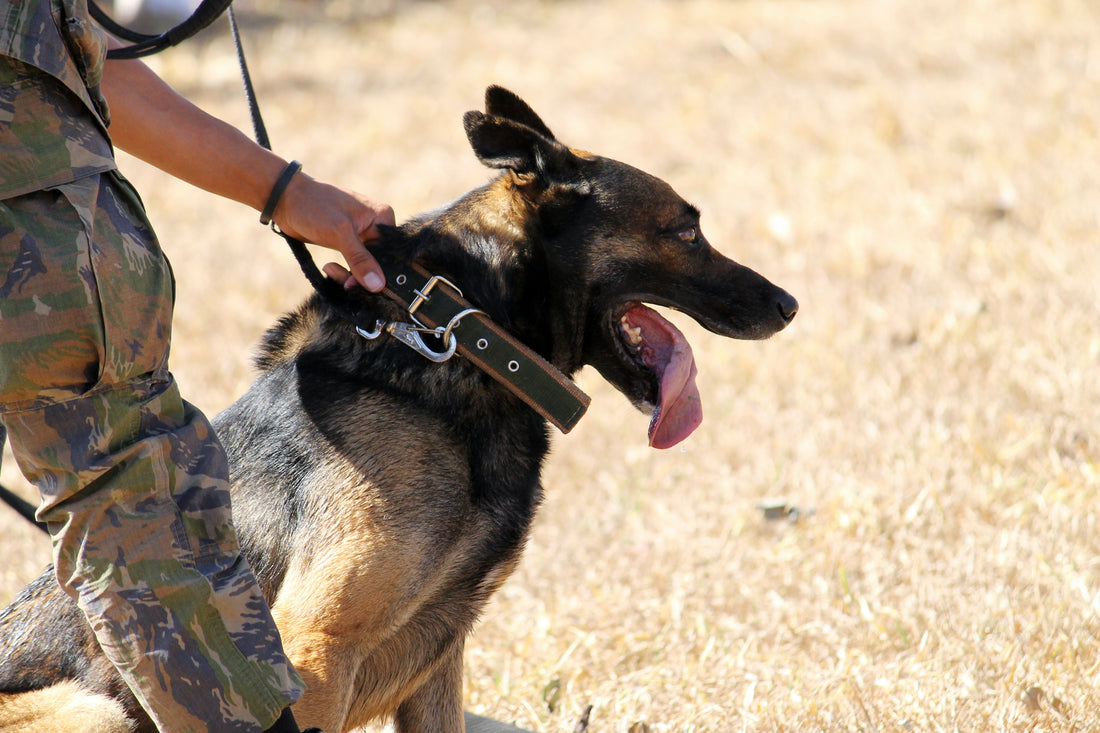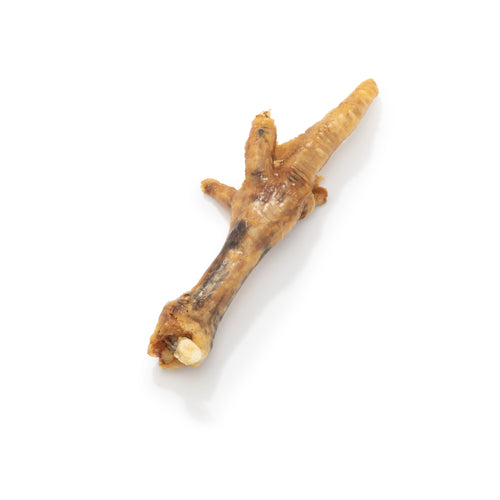
In times of crisis, when lives hang in the balance, heroes often emerge from the most unexpected places. Among these heroes are search and rescue dogs, whose unwavering dedication and exceptional skills play a crucial role in saving lives in the face of both human-made and natural disasters. These remarkable canines, often unsung heroes, are at the forefront of rescue operations in war zones, earthquakes, hurricanes, and more.
This blog sheds light on the extraordinary contributions of search and rescue dogs in times of crisis, highlighting their roles in war and natural disasters.
The History of Search and Rescue Dogs
The use of dogs in search and rescue operations can be traced back to ancient civilizations, where they were initially employed for hunting purposes. Over time, their remarkable sense of smell and tracking abilities were recognized and harnessed for life-saving purposes.
In the 17th Century, monks at the Great St Bernard Hospice - a resting point and hostel for travellers through the swiss alps - developed the St Bernard breed. Initially kept as guard dogs, they began to take up a search and rescue role, with dogs able to locate travellers through thick snow - the first written record of this occurring in 1690. For more than 250 years, dogs rescued travellers in this alpine pass, with the last rescue taking place in 1955. The most famous of all, Barry, saved more than 40 lives between 1800 and his death in 1814.

Barry’s body is now on display in this gallery in the Bern Natural History Museum
In the modern era, the use of search and rescue dogs became more formalised during the First World War. European armies began training dogs to haul equipment, carry messages, locate wounded soldiers, and carry out pest control in the trenches. Their effectiveness in wartime operations was undeniable, and their role evolved further in subsequent conflicts.
Search and Rescue Dogs in War Zones
War zones are among the most challenging environments for search and rescue operations. In such high-risk areas, search and rescue dogs have played a vital role in locating and saving injured soldiers and civilians. Here are a few key roles these extraordinary canines take on in war zones:
Locating Injured Personnel: In the chaos of a battlefield, search and rescue dogs are invaluable in locating wounded soldiers who might otherwise go unnoticed. Their keen sense of smell allows them to find injured personnel even when buried under rubble or concealed in difficult terrain.
Explosives Detection: Search and rescue dogs are also trained to detect explosive devices and dangerous substances. This skill is vital for military and civilian personnel, as it helps prevent accidents and acts of terrorism.

One of many explosive detection dogs - Treo, similar in appearance to the dog above - deployed in the Afghanistan war. He was so successful in locating explosive devices he was noticed by the insurgents, and intercepted radio traffic included conversations about "the black dog." He retired in 2010, and passed away in 2015.
Psychological Support: Beyond their practical roles, search and rescue dogs provide vital psychological support to soldiers in war zones. The presence of these loyal companions can offer comfort and a sense of normalcy in the midst of chaos and danger.
Disaster Response
While the active battlefield is one arena where search and rescue dogs prove their worth, other disasters present an entirely different set of challenges. These disasters, such as earthquakes, hurricanes, floods, and wildfires, often strike with little warning, causing widespread destruction and loss of life. Search and rescue dogs are essential in these scenarios:
Disaster Search and Rescue: Trained search and rescue dogs are deployed to locate survivors trapped under debris or in hazardous conditions after natural disasters. Their agility and determination enable them to access areas that are otherwise inaccessible to humans and machinery.
Rapid Deployment: Search and rescue dog teams are known for their rapid deployment in the aftermath of natural disasters. Their ability to cover extensive areas quickly is invaluable in the race against time to save lives. One study estimated that 70% of searching carried out after a disaster is carried out by dogs.
Victim Recovery: Tragically, not all search and rescue operations end in rescues. In many cases, these remarkable dogs play a role in recovering the bodies of those who did not survive, providing a measure of closure for grieving families.
Away from war zones and disasters, mountain rescue teams worldwide employ search and rescue dogs - their ability to cover large amounts of uneven terrain, at speed, often following old scent, remains unparalleled.
The Training and Skills of Search and Rescue Dogs
The abilities of search and rescue dogs are a testament to their rigorous training and unwavering dedication. Training typically begins when these dogs are puppies and continues throughout their lives. Key elements of their training include:
Scent Detection: Search and rescue dogs are trained to recognize and follow specific scents, even in the most challenging conditions. Their keen sense of smell can detect scents through rubble, water, and even deep underground. For search and rescue work, they follow human scent.
Agility and Obedience: These dogs must be agile and obedient, able to traverse treacherous terrain and obstacles while following their handler's commands with precision.
Socialisation: Search and rescue dogs are also trained to be social and comfortable around people, as their work often involves interacting with victims and first responders.
Teamwork: Successful search and rescue missions depend on the bond between the dog and its handler. They must work as a seamless team, understanding each other's signals and cues.

Photo by Altino Dantas on Unsplash
Search and Rescue Dog Breeds
Whilst all breeds of dog have a sense of smell that far surpasses any human abilities, not all dogs are suited for search and rescue work. Certain breeds are particularly well-suited for the demands of this profession due to their physical characteristics and temperament. Here are some of the most common search and rescue dog breeds:
German Shepherds: Known for their intelligence and versatility, German Shepherds excel in a variety of search and rescue roles. Their strong work ethic and loyalty make them ideal candidates.



Belgian Malinois: These agile and highly trainable dogs are often used in military and police search and rescue units. Their focus and determination make them ideal for the job.

Photo by Didssph on Unsplash
Border Collies: Renowned for their intelligence and agility, Border Collies are particularly suited for search and rescue missions that require navigating tricky terrain.

Photo by Lukas Ruzicka on Unsplash
The Emotional Toll on Search and Rescue Dogs
While search and rescue dogs perform heroic acts, the work takes a toll on these animals, both physically and emotionally. The strain of disaster response, exposure to traumatic scenes, and the loss of fellow canines and handlers can have a lasting impact. It is vital for organisations and handlers to prioritise the well-being of these dedicated dogs. Proper care, rest, and emotional support are essential to help them continue their life-saving work.
In the situations where dogs are unable to “do their job” such as they are unable to locate any survivors, volunteers will often hide to allow the dog to finish their work on a positive, rewarding note.
The partnership between a search and rescue dog and its handler is a unique and profound bond. Handlers often develop an intense connection with their dogs, built on trust, communication, and shared experiences. This partnership is the cornerstone of successful search and rescue operations, as it allows the handler to interpret the dog's cues and direct their efforts effectively.
Challenges Faced by Search and Rescue Dogs
Search and rescue dogs face numerous challenges in their line of work. These include:
Physical Demands: The work of search and rescue dogs can be physically demanding, with long hours of searching and navigating challenging terrain taking a toll on their bodies.
Stress and Trauma: These dogs are exposed to traumatic scenes and may witness the suffering of victims. Coping with these emotional stresses is a real challenge for them.
Health Risks: Working in disaster zones and war zones exposes search and rescue dogs to various health risks, including contaminated water, sharp debris, and dangerous wildlife.
Retirement and Transition: After a certain age or when they can no longer perform their duties, search and rescue dogs need to transition to retirement. This transition can be challenging, as they often have a strong desire to continue working.
The Legacy of Search and Rescue Dogs
Throughout history, search and rescue dogs have saved countless lives and made a profound impact on disaster response and military operations. Their legacy is one of heroism, loyalty, and unwavering dedication. As we reflect on their remarkable contributions in war zones and natural disasters, it is important to recognize the vital role they play in preserving life and offering hope in the face of unimaginable challenges.
In the current conflict in Israel, the Oketz - the Israel Defence Force Canine Department - have been reported to have saved over 200 civilians who were being held hostage.
Search and rescue dogs are not just loyal companions but essential members of teams dedicated to saving lives in times of crisis. Their incredible skills, rigorous training, and strong bonds with their handlers enable them to perform extraordinary feats in war zones and natural disasters. As we celebrate these unsung heroes, it is crucial to remember the sacrifices they make and the emotional toll they bear in their tireless efforts to rescue and protect us. The legacy of search and rescue dogs serves as a reminder of the incredible bond between humans and their four-legged companions, and the power of teamwork in the most challenging of circumstances.






























